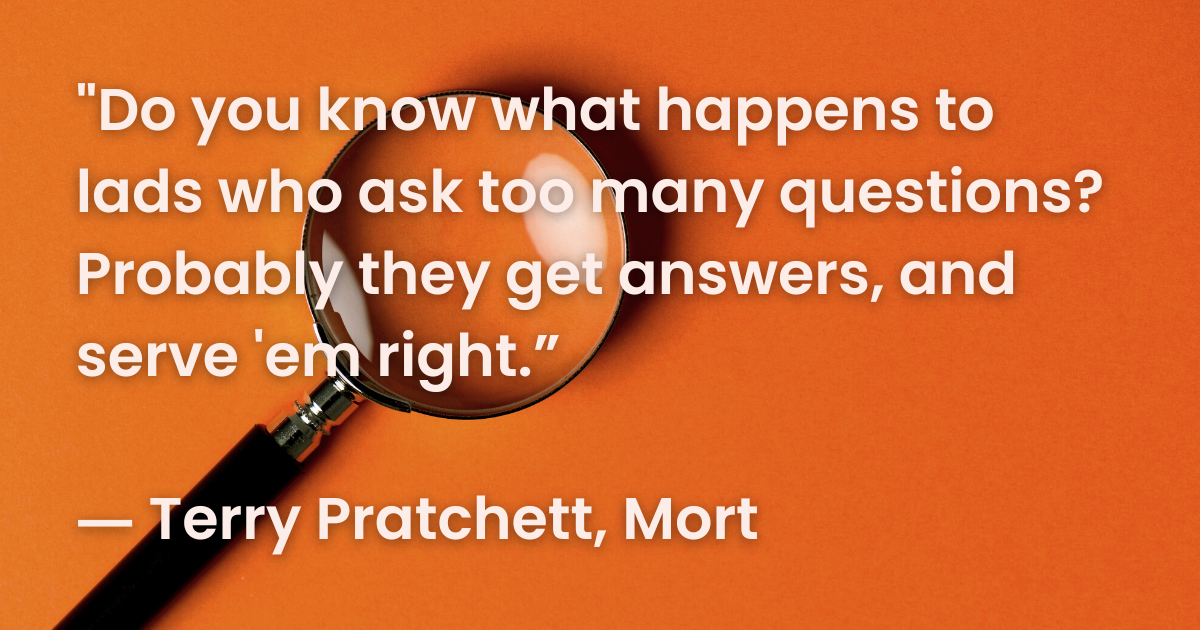So, here I am, in the middle of the night, munching a carrot furiously in front of my screen.
I stare at the code I wrote a couple of hours ago. It stares back at me.
No one ever won a staring contest with their code, so I made the obvious decision.
I start googling like crazy, fully aware that what I'm doing is completely ridiculous.

It all started with my intention to stay connected to all the awesome people who pay my salary - a number of software engineers.
I enrolled in a course by Code Academy - "Learn Python 3". By the way: Code Academy is amazing for beginners!
I reached a point where I had to calculate a couple of prices and print a receipt.
The problem was not with the task (I managed relatively well).
The problem was that my brain refused to let go of the price. It was: 333.34168853 something.
At 09.00 o'clock, I watch anime with my common sense emphasizing that I did everything the task required of me.
At 10.00 o'clock, I catch myself, instead of watching Ichigo beating Ulquiorra to a pulp, thinking about that goddamn price.
"There is no chance in hell I am giving an invoice with that price format to ANY client, FICTIONAL or not". I get up, despite my common sense weeping.
5 carrots, 10000 unladylike curses, and an almost broken keyboard later, I did it!
I fixed the goddamn price to be 333.34 €.
I told my common sense to shut the hell up.
It felt like a tremendous and righteous achievement.
Those of you who write code all day, every day, probably know how ridiculous my sense of achievement was. I know it's an easy task.
But, for me, it wasn't, and I felt on top of the world. I slept like a baby.
Why am I telling you all this?
Certainly, not to brag about my coding skills.
I swear most of my colleagues would voluntarily gauge their own eyes before looking at my code twice.
But, there is a big BUT here:
Practice a skill long enough, and you gain something that many would call discipline.
I hate the notion of punishment in "discipline" with a passion, so I call it a level of standard.
A certain bar under which you'd be extremely uncomfortable to perform.
No one who's practiced for 4 years in sales will give a client (yes, even a fictional one) a price with more than 2 decimals or forget to make the currency blatantly obvious.
So you have two choices:
❌ Use your level of standard to stay high and mighty: "Have these guys even seen a client - they are not eligible to teach me!!", rage quit and learn nothing
or
You're not your job.
The skills you practice while doing it, though, create a certain level of standards. They stack.
Now let me finish by answering the obvious question:
"Did I become a good software engineer because I practiced sales for 4 years?"
No, God forbid, no. As I said, the people I work with would rather quit their job for good than let me write a single line of code under their supervision.
Still, I managed to impress a colleague once or twice and connect better with them.
That was, after all, the whole point of my adventure to begin with.
"Did I learn faster because I practiced sales for 4 years?"
Yes, definitely. People helping me were astonished by the questions I asked for my level.
I don't know if I will continue learning to code, but I know I did learn something important while trying it.
Keep practicing,
Diana








